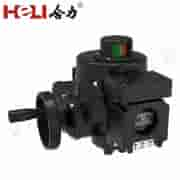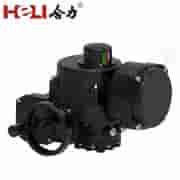
In the quest for sustainable energy solutions, hydrogen energy has emerged as a leading contender, particularly in the development of innovative technologies like hydrogen energy electric actuators. These actuators represent a significant leap forward in the integration of clean energy sources into mechanical systems, offering a more environmentally friendly alternative to traditional electric actuators powered by fossil fuels. This article explores the fundamentals of hydrogen energy electric actuators, their benefits, challenges, and potential applications in various sectors.

Understanding Hydrogen Energy Electric Actuators
Hydrogen energy electric actuators are devices that convert electrical energy generated from hydrogen fuel into mechanical motion. Unlike conventional electric actuators that rely on batteries or the electrical grid, hydrogen actuators utilize hydrogen fuel cells to produce electricity. The basic principle involves the electrochemical reaction between hydrogen and oxygen, generating electricity while emitting only water vapor as a byproduct. This clean energy conversion process not only enhances efficiency but also significantly reduces the carbon footprint associated with traditional power sources.
